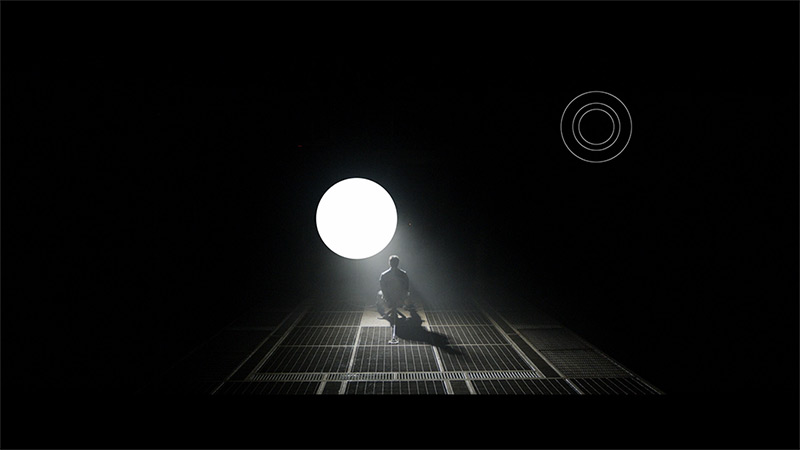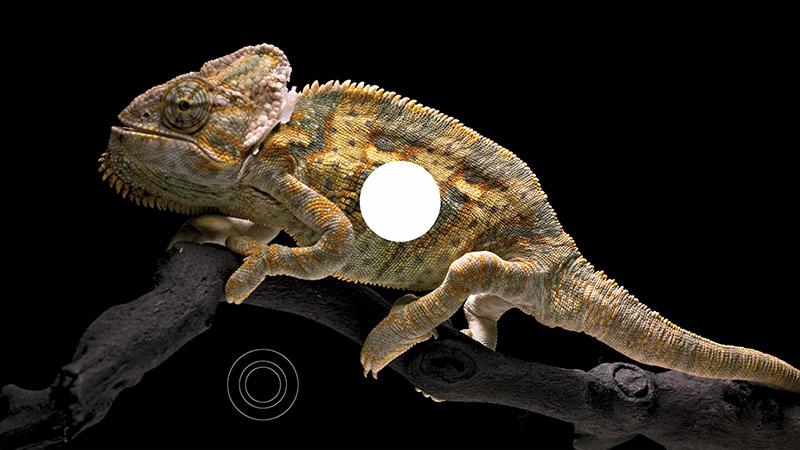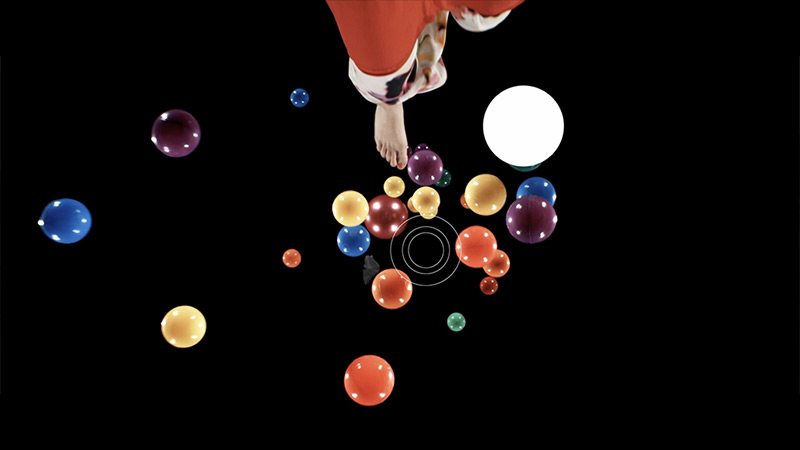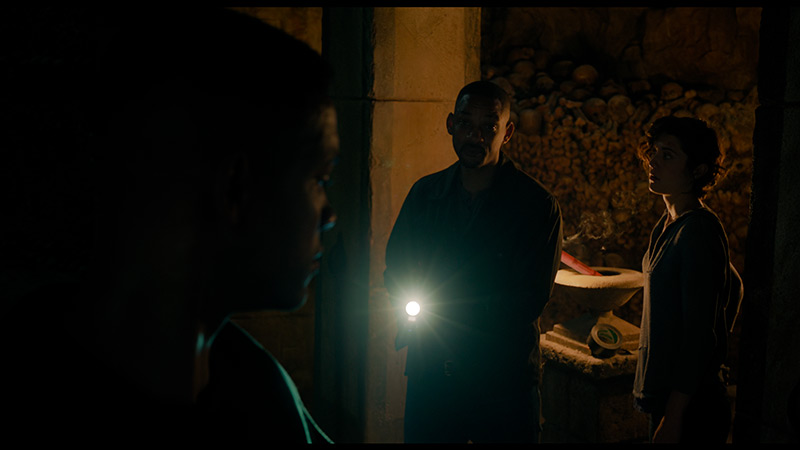Xiaomi A Pro 2025 is an affordable QLED model that works well as a basic television in the home. The Google TV operating system deserves attention. Thanks to it, one can easily use apps like Netflix and YouTube. The interface is clear and user-friendly, and the ability to search by voice in Polish allows for quick access to content of interest. The picture on the A Pro 2025 is sufficient for everyday television watching or film viewing. Smooth tonal transitions and the enhancement of older materials make even lower resolution content look good. However, the screen brightness may disappoint in very sunny rooms – here the television performs mediocrely, but it fares much better in a dimly lit room. The television is rather suitable for occasional gaming. Low input lag ensures quick response, which is important for dynamic games. However, the 60 Hz panel and lack of more advanced features may not appeal to gamers seeking perfect image fluidity. On the other hand, A Pro 2025 may be sufficient for those who play from time to time. Not everything works perfectly. When connecting the television to a computer, the fonts are difficult to read, which can hinder text work. The Google TV system itself can be a bit slow, which sometimes complicates the quick switching of applications. Xiaomi A Pro 2025 is a simple and functional television that is suitable for daily television viewing and using apps. It has its flaws, such as average brightness and font readability issues, but at this price, it offers quite a lot. It is a good choice for those looking for budget equipment for basic uses.
- Matching (Score)
- Our verdict
- TV appearance
- Where to buy
- Contrast and black detail
- HDR effect quality
- Factory color reproduction
- Color reproduction after calibration
- Smoothness of tonal transitions
- Image scaling and smoothness of tonal transitions
- Blur and motion smoothness
- Console compatibility and gaming features
- Input lag
- Compatibility with PC
- Viewing angles
- Daytime performance
- Panel details
- TV features
- Apps
- Playing files from USB
- Sound
XIAOMI A PRO 2025 vs Sharp GR8
Direct comparison
GR8765E / GR8465E / GR8265E


Panel type: LCD VA
Resolution: 3840x2160
System: Google TV
Model year: 2024
Complete the survey to find out the result

Panel type: LCD VA
Resolution: 3840x2160
System: Google TV
Model year: 2024
Complete the survey to find out the result

Overall rating
5.5
6.4
Movies and series in UHD quality
5.8
6.2
Classic TV, YouTube
6.1
6.1
Sports broadcasts (TV and apps)
5.1
6.4
Gaming on console
6.2
7.8
TV as a computer monitor
1.0
4.0
Watching in bright light
3.8
4.5
Utility functions
5.5
6.0
Apps
9.6
9.6
Sound quality
6.0
7.0
Complete the survey to find out what fits your preferences
Advantages
Advanced Google TV operating system
Voice control in Polish
Good image processing
High native contrast
Attractive price
VA matrix with decent contrast
144 Hz refresh rate and two HDMI 2.1 ports – a great option for gamers
Supports VRR and ALLM, low input lag
Supports Dolby Vision
Google TV with a rich selection of applications, voice search in Polish and an intuitive interface
Decent sound
Disadvantages
Low brightness
Poor font readability
The system can lag
HDR brightness is lower than the manufacturer claims (around 360 nits instead of 500)
In PC mode, it does not support chroma 4:4:4 – text and fonts are less readable as a result
No recording to USB and no PiP function
No support for AirPlay – Apple device owners may feel deprived
Our verdict
Sharp GR8 is a television primarily designed for those who expect the smoothest possible image. It is in a way the successor to the FQ8 model, and it is evident that the manufacturer has strongly focused on the aspect of motion dynamics. 144 Hz makes a difference – and not just in games. Sports broadcasts can also look stunning, without those annoying smudges or "jumps" that can spoil the enjoyment of watching. In terms of picture quality, Sharp has opted for a VA panel. Although there is no local dimming, one can still count on pleasant contrast. Added to this is Dolby Vision, which gives evening film sessions depth – even if the television does not achieve the brightness promised by the manufacturer. It must be said that when the lights in the room are dimmed, the overall presentation is truly pleasing to the eye. One of the biggest advantages of the GR8 is Google TV. We have access to a full range of applications, voice search in Polish, and a simple, intuitive interface. Thanks to this, we are not limited to the standard functions of the television, as there is always the possibility to install additional programmes and adapt the system to our own needs. Of course, a few aspects could have been refined. The declared HDR brightness is higher on paper than in reality, which may leave the most demanding cinema enthusiasts feeling unsatisfied. Besides that, there are a few useful features missing that we are familiar with from other models: there is no recording to USB or PiP functionality, and Apple device owners will be disappointed by the absence of AirPlay. Nevertheless, this is a television mostly aimed at those who value smooth images and high refresh rates. If we primarily care about dynamic gameplay and good support for games, and in the evenings we want to calmly watch a film with pleasant quality for the eyes, the Sharp GR8 should meet those expectations.
TV appearance








Contrast and black detail
5.9/10
5.9/10
Local dimming function: No
Local dimming function: No
Contrast:

Result
5,950:1

Result
6,300:1

Result
5,200:1

Result
5,100:1

Result
5,150:1

Result
5,300:1

Result
5,800:1

Result
6,600:1

Result
5,650:1

Result
4,700:1
Halo effect and black detail visibility:


Xiaomi A Pro is equipped with a VA matrix, which inherently offers significantly better black depth and colour intensity compared to IPS panels, especially in dimly lit conditions. Based on the conducted tests, the contrast measurement tool indicated a maximum value of around 6000:1. This is a solid result, ensuring good separation of image elements in darker scenes. An example can be the film Oblivion, where the television performed excellently in separating light and dark areas, enhancing the visual effects. Unfortunately, the television does not support local dimming technology, which is an obvious fact in this price range. This becomes particularly evident in more challenging scenes, such as those from the film Sicario 2. In such moments, the black loses intensity and starts to resemble a rather navy shade. The lack of dynamic dimming of image segments causes details that should be deeply darkened to remain slightly illuminated.
Sharp GR8 uses a VA panel, which can provide quite commendable contrast. In the tested film scenes, for example in "Arrival", the television showed that it can achieve really good results. A contrast ratio of 6600:1 is a result that can be considered solid in this price segment. However, it should be mentioned that the television is not equipped with local dimming technology. This is quite obvious, considering the class of the equipment. Nevertheless, Sharp GR8 performs well in separating light and dark elements, which definitely deserves recognition. It is worth remembering, however, that televisions without local dimming have their limitations. In very dark conditions, for example during a screening in a completely darkened room, blacks can shift to shades of navy blue instead of appearing deep and pitch black. Generally, Sharp GR8 offers quite solid contrast that should satisfy most users.
HDR effect quality
3.5/10
4.8/10
Luminance measurements in HDR:

Result
205 nit

Result
220 nit

Result
243 nit

Result
213 nit

Result
237 nit

Result
305 nit

Result
332 nit

Result
369 nit

Result
365 nit

Result
367 nit
Scene from the movie “Pan” (about 2800 nits)


Scene from the movie “Billy Lynn” (about 1100 nits)


Static HDR10


Dynamic: HDR10+
Dynamic: Dolby Vision


HDR luminance chart:
Sharp GR8
HDR luminance
XIAOMI A PRO 2025
HDR luminance
In the HDR category, the television Xiaomi A Pro is, to put it plainly, lacking. Under ideal conditions, it offers brightness at around 250 nits. This is a poor result; however, in this price range, many competing models offer similar or lower values. Such brightness is too low to fully realise the potential of HDR content. In practice, this means that the image does not gain the appropriate depth and intensity expected from high-quality HDR. These values are more characteristic of standard dynamic range (SDR), which means that the true HDR effect remains beyond the reach of this model, and scenes that should stand out with spectacular brightness and contrast seem flat and lacklustre. However, for its price, the television offers good coverage of the DCI-P3 colour gamut at 92%, thanks to the use of quantum dot technology (specifically PFS LED). This results in vibrant and saturated colours, which will appeal particularly to gamers and film enthusiasts who appreciate richer shades and better colour reproduction compared to traditional televisions without this technology.
Sharp GR8 in its promotional materials boasts of "very high brightness" at a level of 500 nits. Unfortunately, our tests showed that the reality is somewhat different – the average luminance value we managed to achieve was around 360 nits. This is rather an average result, especially in the context of the manufacturer's claims. Such brightness does not allow for a full enjoyment of HDR effects. The image is a bit more defined than in standard SDR, but it is difficult to speak of true richness and depth in bright elements here. However, praise is due for the DCI-P3 colour gamut coverage at a level of 95%. This is a result of the application of an additional PFS layer, known from QLED technology. As a result, the colours are vivid and have a pleasant, natural tone, which somewhat compensates for the deficiencies in brightness.
Factory color reproduction
5.1/10
5.4/10


Factory Mode
After calibration


Factory Mode
After calibration
The Xiaomi A Pro 2025 television has been tested in movie mode, which offers the best colour reproduction straight out of the box. However, it is worth noting that it is not free from flaws. Analysing the white balance, it can be observed that the values for green are in the negative. This phenomenon leads to some distortions in the shades of white, and with pure white, the graph shows clear deviations. The over-contrasted image results in inappropriate tonal transitions in red, negatively affecting the quality of colour display. Generally, in the image below, it can be seen that the overall scenery before calibration acquires pink hues. Additionally, when analysing gamma contrast, the graph is significantly below the 2.4 value, suggesting that the television overly emphasises dark tones, and the brighter areas of the image may be less vivid. Furthermore, the EOTF curve shows a strong peak at the beginning, which can lead to a loss of detail in bright scenes and an unpleasant feeling of over-drawing. These aspects indicate a need for further calibration to achieve a more balanced colour reproduction and improve the overall image quality. Users who expect precise colour reproduction may be forced to take measures to adjust the television settings to achieve more realistic and natural visual results. In the xiaomi tv a pro 2025, the factory colour settings in Xiaomi are average and may require calibration. After proper colour adjustment, the image gains a natural and vibrant colour palette, much closer to cinematic standards. It is worth adding that the issue of inaccurate colour reproduction is typical for many televisions in this class, meaning it is not a flaw unique to the Xiaomi A Pro 2025 TV. For those who value perfect colour reproduction, professional calibration will prove to be a key element that enhances the overall image quality.
At the outset, it is worth noting that colour reproduction tests are always conducted in the best factory picture mode. In the case of Sharp GR8, this is the “Film” mode. As for white balance, which affects how we perceive colours on the screen, in SDR mode, there is an immediate noticeable dominance of blue. This results in an unnatural cooling of the image – blue elements take on a purple hue, and skin tones acquire a pinkish glow, as we can see in the comparative photo from the film STAR WARS. During the Color Checker test, it was clear that the colour samples deviated from the reference values, confirming considerable errors in colour reproduction. The gamma was also not ideal – it caused excessive brightness throughout the entire image, resulting in a lack of depth and appropriate tonal transitions in the scene.
In 4K HDR mode, the situation looks significantly better. The dominance of blue is much less noticeable, although there are minor issues with the combination of red and blue. This causes some shades to appear somewhat unnatural. The EOTF curve, responsible for the brightness of the image in 4K HDR content, revealed another problem – the television tends to excessively dim the image across the entire surface of the screen.
In summary, the “Film” mode in Sharp GR8 would require a few adjustments to fully utilise the potential of this television. Fortunately, we took care of that and proceeded with calibration.
Color reproduction after calibration
7/10
8/10




Now it's time to check how the Xiaomi A Pro 2025 television has performed after calibration. The biggest beneficiary of this process is the white balance. After the calibration was conducted, all previous errors were corrected in both HD and 4K content, and most errors no longer fall significantly outside the value of "2". This means a much more balanced and natural colour representation, which certainly affects the viewing comfort. In terms of gamma, the drop was significantly reduced, resulting in a more consistent tonal representation across various scenes. Nevertheless, the EOTF curve has not been significantly improved due to a lack of effective control over dynamic tone mapping. This limitation means that there are still some issues with detail reproduction in bright scenes, which may affect the perception of certain materials. However, despite these minor shortcomings, the overall shape of the image is definitely better after calibration. The television has gained in quality, and the improved white balance along with reduced gamma issues allows users to enjoy a more realistic and pleasant visual experience. Further adjustment of settings may enhance image quality even more, but even now the television demonstrates its capabilities, meeting the expectations of many users.
Sharp GR8 is one of those televisions that truly gains a second life after proper calibration. Both in HD and 4K content, the white balance performs very well, especially when considering the price segment of this model. The image becomes much more aligned with what the director intended to show – colours look natural, and skin tones acquire the appropriate depth and warmth. The brightness characteristics also make a very positive impression. Both gamma and the EOTF curve display really solid values. While minor imperfections can be noticed, they are subtle enough that they are difficult to detect during everyday viewing. In summary, calibration allows the Sharp GR8 to showcase its best features, offering an image that is not only pleasant to the eye but also faithfully reflects the creators' intentions.
Smoothness of tonal transitions
9.3/10
8/10












During the fluidity tests of tonal transitions on the Xiaomi A Pro 2025, the gradation proved to be close to perfect. In most of the test sequences, there were no noticeable issues. Only in the scene with red water did very cosmetic imperfections appear, which, however, have little impact on the overall image quality. Both colourful and grey gradients were reproduced with almost perfect precision, making this television model a very good choice for those who pay attention to this particular feature of a TV.
When it comes to the smoothness of tonal transitions in high-quality materials such as 4K, Sharp GR8 performs exceptionally well. The colour gradients are smooth, and the transitions between shades are natural and free of visible artifacts. The television has no trouble reproducing subtle differences in colours, even in demanding scenes. Only the most discerning users, who scrutinise the image closely, may notice slight imperfections in the darkest shades. For most viewers, the quality of tonal transitions in the Sharp GR8 will be more than satisfactory and will not negatively affect the viewing experience.
Image scaling and smoothness of tonal transitions
6.9/10
5.5/10
Smooth transition function


Image without overscan on the SD signal


How does the Xiaomi A Pro 2025 television cope with tonal transitions, especially with lower-quality materials? Thanks to advanced digital processing, the colour contour removal function works surprisingly well. We recommend setting this option to "Medium" – the television significantly improves the fluidity of tonal transitions while avoiding excessive smoothing of other image elements, such as film grain.
In the case of the tested image featuring a model and numerous branches in the background, the Xiaomi A Pro 2025 showcased its capabilities in terms of digital processing. Adding artificial sharpness to this scene made the details of the model more pronounced, and her hair appeared more detailed. However, delicate contours appeared around the branches in the background, which were a result of digital interference. Although this enhances the overall impression of detail, excessive sharpness can make some elements of the image seem unnaturally emphasised.
Sharp GR8 has been equipped with the "10-bit colour reproduction" feature, which theoretically should improve the smoothness of tonal transitions. In practice… well, the effect is surprising, but not in a particularly positive way. Even at the highest settings, it is difficult to notice any impact on the actual tonal transitions. Instead, the feature surprisingly smooths out what it shouldn't – walls, shirts, or other flat surfaces look almost like they have been freshly ironed. In the test, we had to note that there is simply no actual impact on tonal transitions.
As for image scaling, here Sharp GR8 performs significantly better. The television can give the image a plastic, smooth characteristic, meaning even lower resolution content looks quite good. Of course, with more demanding details, such as thin tree branches in the background, one can notice slight jaggedness, but it is not something that would significantly affect viewing comfort.
Blur and motion smoothness
4.3/10
7.4/10


Blur (native resolution, maximum refresh rate):






Xiaomi A Pro 2025 offers a motion smoothing feature called "Motion Smoothing," which primarily works in films. It can be adjusted to prefer either a more cinematic, film-like effect with visible frames, or a smoother, theatre-like image. This function should satisfy those who intend to watch mainly films on it. However, gamers and sports fans may feel disappointed. The 60 Hz refresh rate panel, typical in this price range, does not impress. Our "Ufo" test revealed some motion blur. Those expecting better sharpness of moving objects may be slightly let down.
This is where Sharp GR8 has the chance to stand out from the competition in its price segment. The television is equipped with a 144 Hz refresh rate panel, which is an impressive achievement, especially if we plan to use it for dynamic content such as action films, sports broadcasts, or video games. Additionally, the manufacturer has ensured the presence of motion smoothing technology, commonly referred to as a “smoothness enhancer.” The user has three levels of adjustment at their disposal, allowing them to tailor the effect to their own preferences – from subtle smoothing to a more aggressive intervention in the smoothness of the image. This is a nice addition, particularly for those who mainly watch films and care about smooth, cinematic sequences without irritating stutters or frame drops.
Console compatibility and gaming features
3.3/10
7.8/10
- ALLM
- VRR
- VRR range48 - 144Hz
- Dolby Vision Game Mode
- Correct implementation of HGIG
- 1080p@120Hz
- 1440p@120Hz
- 4K@120Hz
- Game bar








Xiaomi A Pro 2025 offers several features useful for gamers, including Game Bar, which is different from the typical "dashboards" with interfaces found in other manufacturers' products. Thanks to this, users can quickly access game-related settings, which is convenient during intense sessions. The TV also supports Automatic Low Latency Mode (ALLM), meaning it automatically switches to a mode optimised for gaming, reducing signal latency. Unfortunately, it lacks support for HDMI 2.1, limiting its capabilities for connecting the latest gaming consoles that may require higher bandwidth. Additionally, the TV does not support features such as VRR (Variable Refresh Rate) or G-Sync, which are increasingly desired by gamers, as they allow for smoother visuals and eliminate tearing. For these reasons, although Xiaomi A Pro 2025 has some features for gamers, in this price range, better options can be found that offer more advanced solutions dedicated to gamers.
If the television has a 144 Hz panel and two full HDMI 2.1 ports, it is clear that it has been designed with gamers in mind. The Sharp GR8 offers exactly that – high refresh rates and the appropriate connections that will allow you to get the most out of modern consoles and PCs. It also features ALLM, which automatically switches the television to low latency mode, and VRR, which ensures the image does not stutter even during more demanding moments. In practice, everything works as it should, and it is hard to find fault with anything. However, there are some shortcomings. It lacks support for HGiG, which is a feature that better adjusts HDR for games, as well as Game Bar, which makes it easier to quickly adjust settings without leaving the game. Despite these drawbacks, the Sharp GR8 is truly a solid option for gamers.
Input lag
9.8/10
9.7/10
SDR
HDR
Dolby Vision
Xiaomi A Pro 2025 achieves remarkable results, regardless of the resolution or HDR mode. With measurements at just 15 ms, this television ranks among the top in terms of responsiveness.
Sharp GR8 performs really well in terms of latency. With a refresh rate of 120 Hz, the input lag is just 9 ms, and at 60 Hz – about 18 ms. These values are practically imperceptible even for the most demanding gamers, where every millisecond counts. Importantly, the Dolby Vision mode also works responsively, which is by no means a standard feature in televisions in this price range. This is definitely a big plus for those who want to enjoy not only smoothness but also better HDR effects while gaming.
Compatibility with PC
1/10
4/10


In the category of cooperation with PC, Xiaomi A Pro 2025 performs very poorly. The fonts are of low quality, and their display on the screen is often problematic. Dithering is ubiquitous; when the fonts are enlarged on a dark background, they are displayed in three colours, which is definitely glaring and can significantly hinder comfortable use of the device. Such problems can be a significant downside for users who plan to use the television as a computer monitor.
Sharp GR8 performs quite well as a screen for PC gaming. With a refresh rate of 144 Hz, low input lag, and support for G-Sync and FreeSync technology, it offers a combination that guarantees smooth and responsive gameplay. Games look dynamic, and the image remains stable even in the most demanding moments. However, a problem arises when it comes time to work with text. The television does not support chroma 4:4:4, which means that fonts are blurred and poorly legible. Prolonged work with documents or browsing websites can prove simply tiring for the eyes.
Sharp GR8 is a great choice for PC gamers, but rather poor for office work. If we plan to use this television mainly for gaming, we should be satisfied. However, if we are considering it as a monitor for everyday work, it’s better to look for another solution.
Viewing angles
2.6/10
3.2/10
In the category of viewing angles, Xiaomi A Pro 2025 with a VA panel performs quite poorly. Although you can enjoy better blacks when viewed head-on, from side perspectives, the image loses quality. Our specialists noticed during the testing of the television that sitting a metre away from the device, the image on the right side appeared brightened and desaturated. However, moving a bit to the side improves everything, which demonstrates the significant difference in image reception depending on the viewing angle. All of this means that the experience of watching in a larger group may be less satisfying.
In terms of viewing angles, Sharp GR8 is not surprising – and it's hard to blame it, considering the use of a VA panel. When viewed from a greater angle, the image loses quality, colours become washed out, and contrast clearly drops. Additional coatings to widen the viewing angles could improve this aspect, but that is a solution typically found in more expensive LCD TV models. If we plan to watch television mainly head-on, there won't be a major issue. However, for a larger number of viewers sitting at different angles, it is worth being aware of this limitation.
Daytime performance
3.8/10
4.5/10




Panel brightness
Average luminance SDR
Sharp GR8: 329 cd/m2
XIAOMI A PRO 2025: 249 cd/m2
Xiaomi A Pro 2025 presents itself as average. The panel coating is satin, which may help reduce reflections, but the suppression of glare is average. The brightness of the television is only 250 nits, which is a relatively low result compared to other models on the market. As a result, on sunny days or in brightly lit rooms, the picture quality may suffer, and details may be difficult to perceive.
Sharp GR8 has a satin display that performs moderately well with reflections. Bright elements in the environment, such as windows or lamps, quite clearly reflect on the screen and can be distracting while watching. The brightness level of 330 cd/m² in SDR content is also unimpressive. As a result, the television is best suited for rooms that do not receive too much natural light. Therefore, it can be said that the GR8 holds its own during the day, but it is certainly not equipment designed for heavily sunlit living rooms. If we mostly watch in the evenings or in controlled lighting, it won't be a major issue.
Panel details
Subpixel Structure:


Panel uniformity and thermal imaging:


XIAOMI A PRO 2025
Sharp GR8
TV features
5.5/10
6/10
- HDMI inputs3 x HDMI 2.0, 0 x HDMI 2.12 x HDMI 2.0, 2 x HDMI 2.1 48Gbps
- Other inputsRCA (Chinch)RCA (Chinch)
- OutputsToslink (Optical audio), eARC (HDMI), ARC (HDMI)Toslink (Optical audio), eARC (HDMI), ARC (HDMI), Mini-Jack (Headphones)
- Network InterfacesWi-Fi 2.4GHz, Wi-Fi 5GHz, Ethernet (LAN) 100MbpsWi-Fi 2.4GHz, Wi-Fi 5GHz, Ethernet (LAN) 100Mbps
- TV receptionDVB-T, DVB-T2, DVB-S, DVB-S2, DVB-CDVB-T, DVB-T2, DVB-S, DVB-S2, DVB-C
Classic features:
- Recording to USB (terrestrial TV)
- Recording programming
- Picture in Picture (PiP)
- RF remote control (no need to aim at the screen)
- Backlit remote control
- Teletext
- Audio only mode
- Bluetooth headphones support
- Simultaneous Bluetooth headphones & TV audio
Smart features:
- AirPlay
- Screen mirroring (Windows Miracast)
- Voice search
- Voice search in native language
- Ability to connect a keyboard and mouse




In terms of functionality, Xiaomi A Pro 2025 stands out with the Google TV system, which is one of its biggest advantages. This allows users access to a wide range of apps and streaming services, greatly enhancing the convenience of using the television. The Google TV system also offers a voice assistant that simplifies navigation and allows for quick content searches without the need to browse through menus. One of the key benefits of this system is the ability to download virtually unlimited applications from the Google Play Store, enabling users to personalise the television according to their individual needs. Users can install streaming apps, games, and various tools, making the television a multimedia entertainment hub. However, it is worth noting that this model does not have recording functions or AirPlay, which may be disappointing for some users. Additionally, there are quite significant lags in the operating system, affecting user experience. On the plus side, it is also possible to pair other peripheral devices via Bluetooth, and the remote control does not require aiming at the screen, which significantly improves usability. Despite some shortcomings, Xiaomi A Pro 2025 has the potential to satisfy the needs of users looking for a modern television.
Google TV is definitely the biggest advantage of Sharpa GR8. This system is a true multimedia powerhouse – it includes practically all popular streaming applications, such as Netflix, HBO Max, and Disney+. Voice search works in Polish and, importantly, is really responsive. We can simply tell the television what we want to watch, and it quickly finds the appropriate content. Furthermore, the interface is clear and intuitive, so even those who are not keen on technological innovations will manage without any problems. In short, Google TV does the job.
Unfortunately, when it comes to more classic features, the GR8 is rather average. There is no option for USB recording or PiP (picture-in-picture) functionality. Moreover, although the television supports Bluetooth connectivity, iPhone users may feel disappointed as there is no support for AirPlay.
The remote included in the package is simple but well thought out. It has a solar panel on the front, allowing it to be charged by light, and the additional charging port means we don’t have to worry about changing batteries. It’s also worth noting that the remote does not require aiming at the screen – it works regardless of which direction it is pointed.
Playing files from USB
6.8/10
9.1/10
Supported photo formats:
Maximum photo resolution:


Xiaomi A Pro 2025 offers a decent built-in media player that meets basic user expectations. However, the television has its drawbacks and sometimes encounters issues with playing certain file formats, which can be frustrating. Fortunately, with access to the Google Play Store, users can easily download alternative players that better meet their needs. In our test of the Xiaomi TV A Pro 2025, we demonstrated that its compatibility with applications is high, and additional media playback apps work flawlessly. It is also worth noting that the Xiaomi TV A Pro 2025 is equipped with the Android TV platform, allowing access to a wide range of applications and streaming services. Installing alternative media players improves the overall functionality of the device and eliminates compatibility issues with formats. As a result, the Xiaomi A Pro becomes a more versatile television that can meet the diverse expectations of users, even those with higher demands when it comes to media playback.
Sharp GR8 performs really well when playing media files from USB. It supports virtually all popular audio and video formats, so we don't have to worry about any files not playing.
However, the built-in player has its limitations – for example, we won't find an option to change the font colour in subtitles here. Fortunately, the Google TV system allows us to work around this issue. All you need to do is download an alternative media playback app from the Google Play Store that offers more advanced configuration options.
Apps
9.6/10
9.6/10














































Sound
6/10
7/10
- Maximum volume--
- Dolby Digital Plus 7.1
- Dolby True HD 7.1
- Dolby Atmos in Dolby Digital Plus (JOC)
- Dolby Atmos in Dolby True HD
- DTS:X in DTS-HD MA
- DTS-HD Master Audio
When it comes to sound, Xiaomi A Pro 2025 is impressively positive, especially considering its price. The sound quality is truly solid, and the audio does not deviate from what one would expect in this class. Additionally, the television supports DTS audio formats, which are often lacking in much more expensive TVs. It is worth noting that this assessment is subjective and may vary depending on individual preferences.
Sharp GR8 positively surprises with its sound quality. Although it is equipped with a standard set of speakers, the influence of collaboration with Harman/Kardon can be heard here. The sound is clear, dialogues are well highlighted, and the overall tonal characteristics are pleasant to the ear. It is not at the level of flagship models with advanced audio systems, but for this price segment – it is really good.
Unfortunately, Sharp has decided to remove the built-in soundbar that we could see in the previously reviewed model Sharp FQ8. It's a shame, as this solution significantly enhanced sound quality and gave the TV an edge over the competition.
